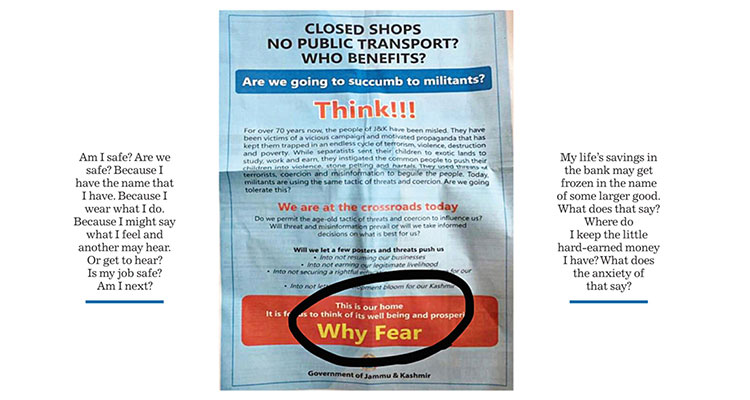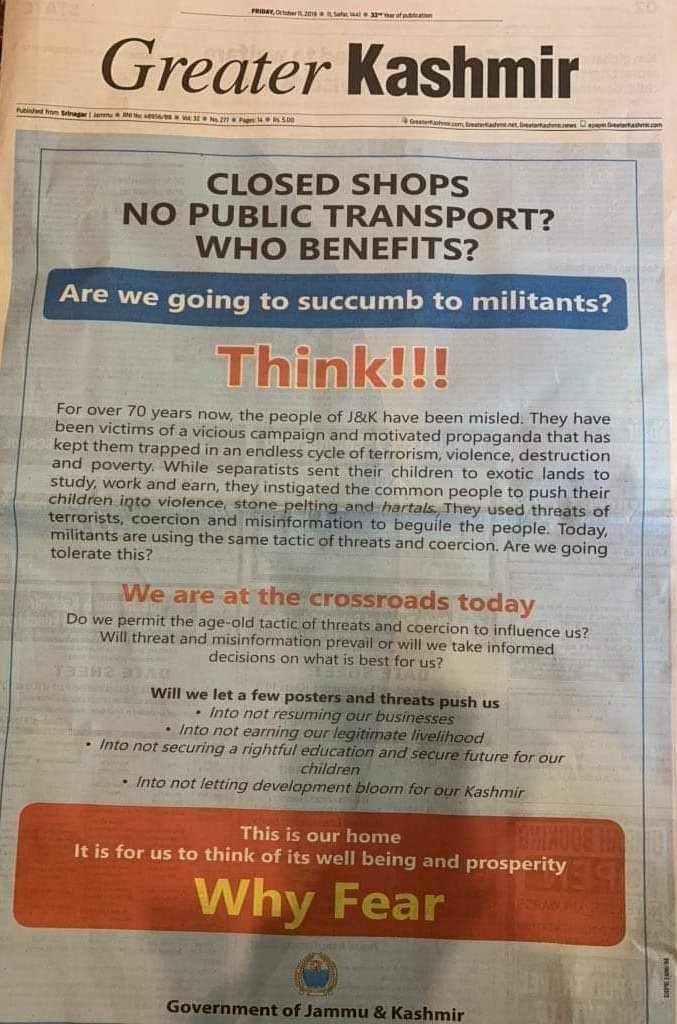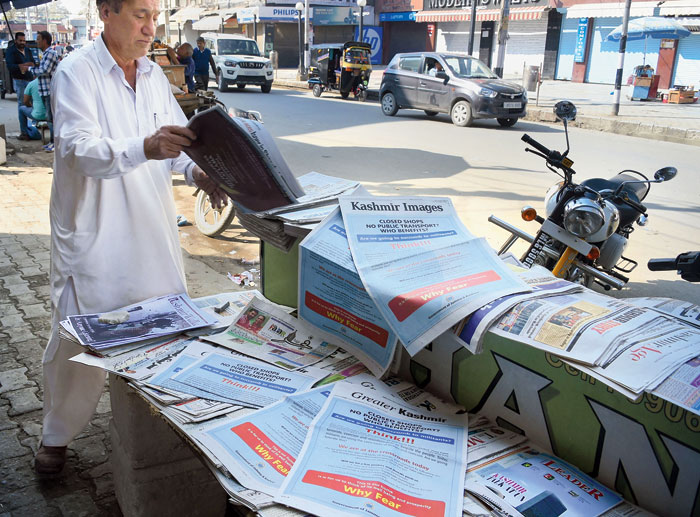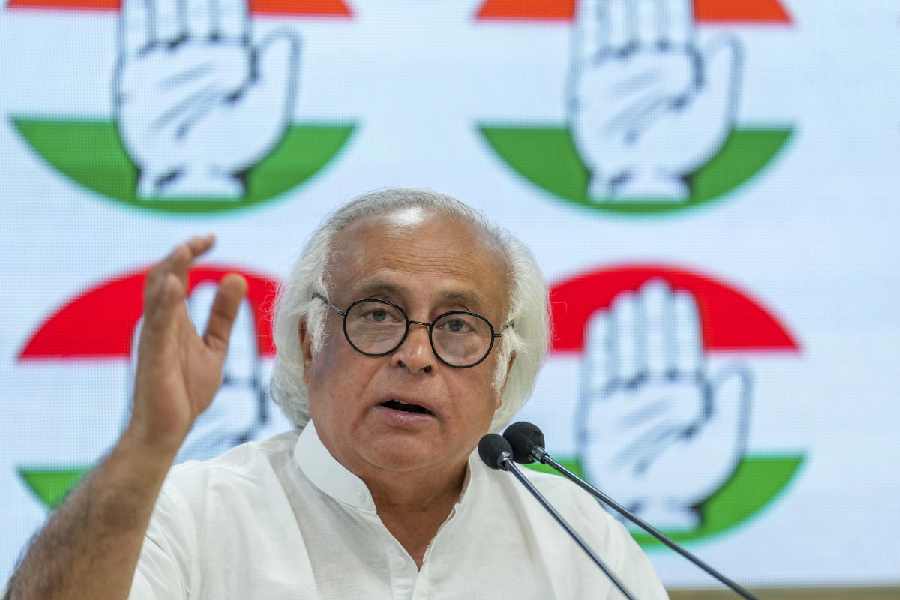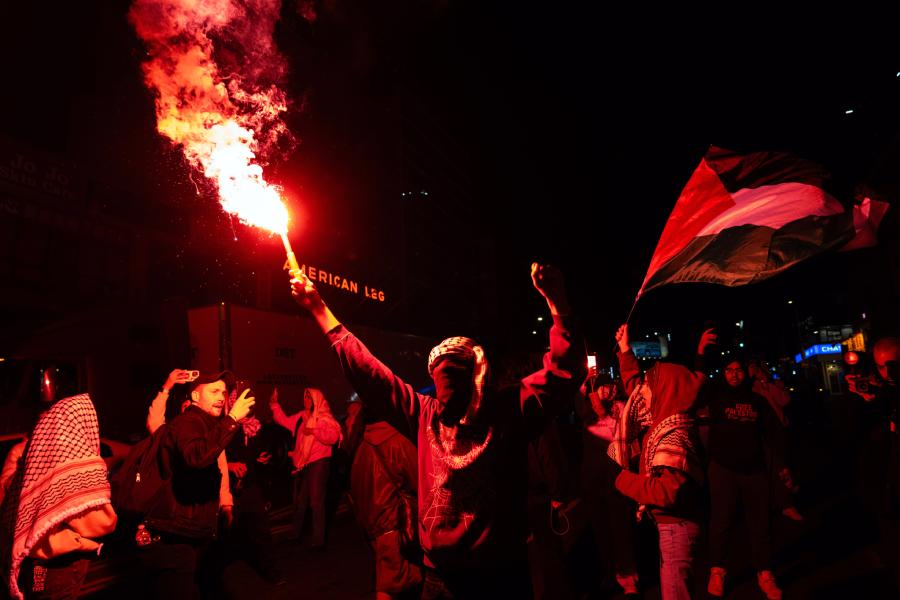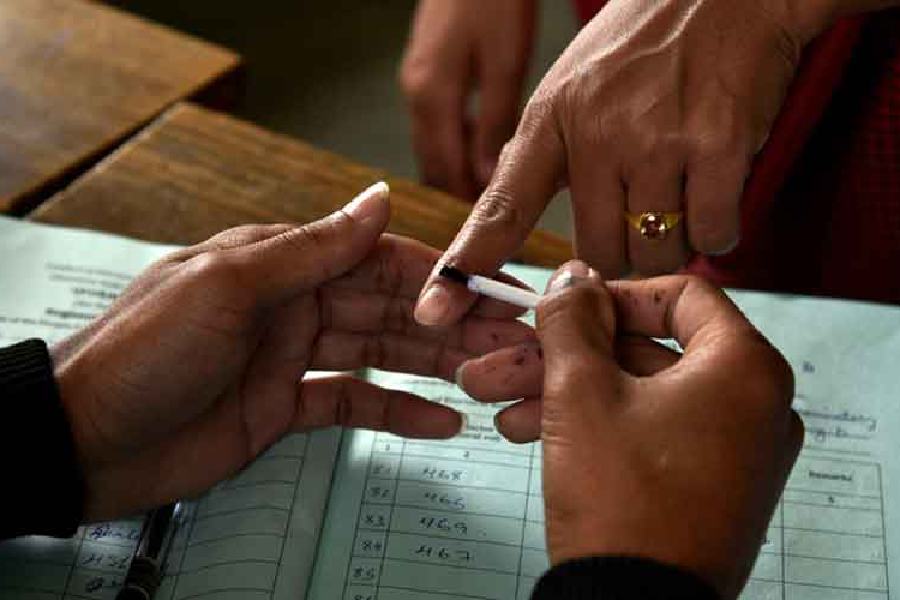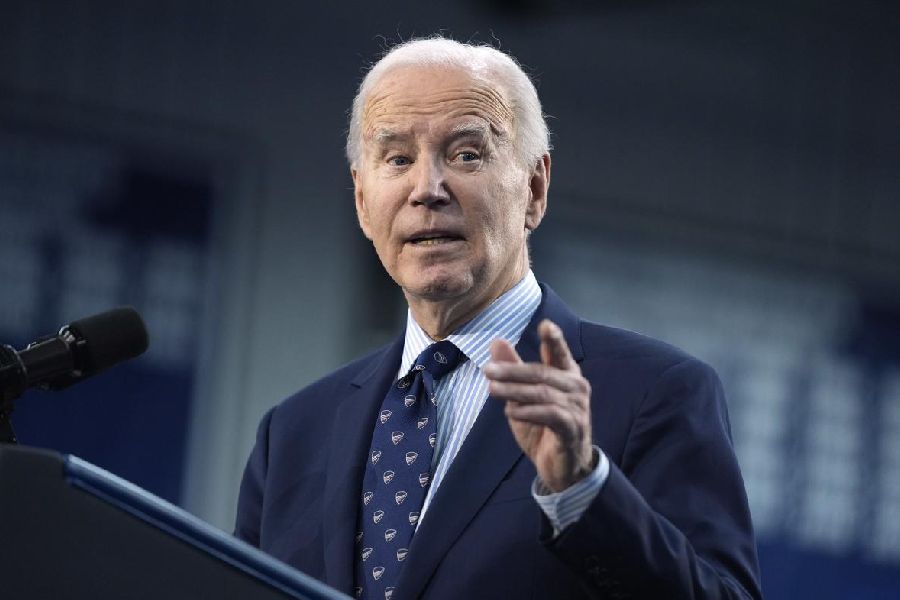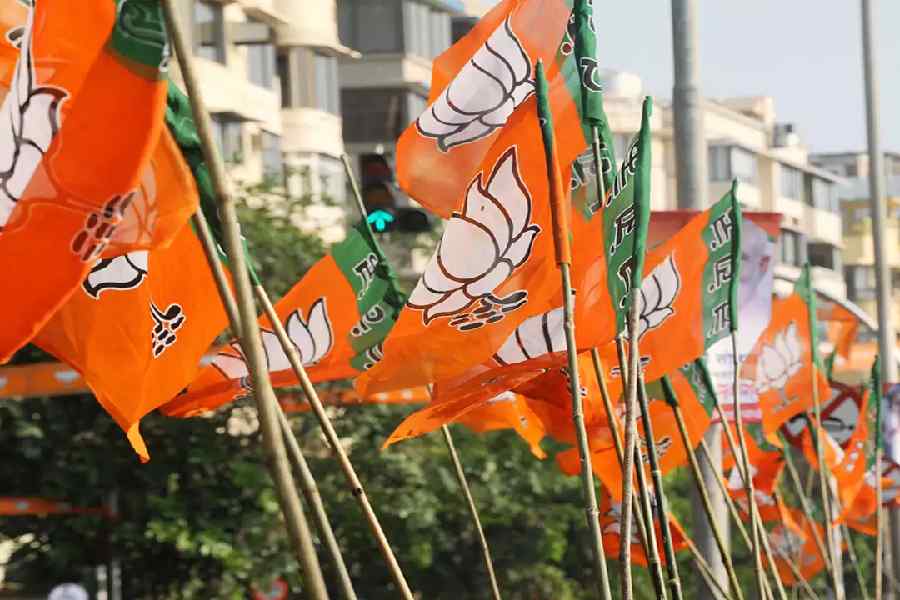Seene mein jalan
Aankhon mein toofan saa kyon hai?
Iss sheher mein har shakhs
Pareshaan saa kyon hai?
— Shahryar
There’s a fretting. There’s worry. There’s fear. All about us. Over all too many things. All of the time. There’s anger and hatred and bigotry too, all of which alchemises into more forms of fear and its consequences. It leaps at you, gnaws at your mind. Even in bed, watching television, trying to get your mind off things. A simple thing as images of excessive rain somewhere. Or excessive lack of it in another place.
The chill looms all about. Over all too many things. Am I safe? Are we safe? Because I have the name that I have. Because I wear what I do. Because I might say what I feel and another may hear. Or get to hear? Is my job safe? So many thousands are losing theirs all around us? Am I next? Is my money safe? Public confidence in the Reserve Bank of India has hit an all-time low. What does that say? Interests rates on savings are falling? What does that say? A bank, good lord, it has collapsed. What does that say? The markets are alarmingly jagged. What does that say? There might be another shock like demonetisation. What does that say? My life’s savings in the bank may get frozen in the name of some larger good. What does that say? Where do I keep the little hard-earned money I have? What does the anxiety of that say? Hundreds of thousands have been declared nowhere’s people and face life in detention. What does that say? Many more hundreds of thousands across this country might be black-balled and bullied into detention. Am I going to be among them? Or some family? Or some friend? People have committed suicide at the mere thought of such a prospect. Do I have the papers to prove I belong? What papers might they be? Where may I acquire them? What do such questions say? What is happening in Kashmir? An entire populace, eight million people, put under the boot and the bayonet. It has been more than two months, they have been in varying degrees of lockdown — physical, mental, psychological, social, political. Their aspirations have been thwarted. Their protests brutally throttled. Their voices silenced. Kashmir must be the only place on earth where the citizenry has been deprived the use of communication — and much else that the Internet affords as a way of sustaining lives — for such a length of time. Thousands of Kashmiris have been arrested, or put under various other kinds of restrictions. Many of those without the courtesy of being quoted a law.
What are we doing? What can we do? There is the fear of what might happen if we do something. If we so much as speak.
It is such a fear that cannot be exorcised now, not even from saying “All is well” in many different languages. A lot of the fear comes from such grandiose and cavalier allaying of it. A fear that won’t wash when RSS chief Mohan Bhagwat brushes off recurrent, and lauded, mob lynching as “alien to Bharat”, and a term merely chosen to defame the “country and Hindu society”. A fear that gets reinforced when leaders of society from Calcutta to Kerala are named in an FIR for sedition, for decrying the act of lynching and the epidemic it has become.
The fear of saying. Should I say this? Should I not? Will something happen to me? Will they get after me? The fear of the consequences of saying. A fear that won’t let us articulate fears, surface and innermost alike. Congress MP Shashi Tharoor wrote in a letter to Prime Minister Narendra Modi: “As citizens of India we hope that every one of us can fearlessly bring to your notice issues of national importance...” But days did not pass and a clutch of students who had written a missive to the Prime Minister expressing concern and apprehension was suspended by Wardha University authorities.
Fear, each of us can feel in varying degrees. For instance, the fear of the nine-year-old motherless boy in Srinagar who went to buy a loaf of bread but ended up thrashed and locked up in a police station for two days. The action against him was reportedly necessary to dissuade stone-pelters. Imagine his fear. Imagine the fear of 17-year-old Osaib Altaf who now lies in the Idgah graveyard. He was allegedly fleeing security forces when he jumped into the river and drowned because he had never learnt to swim. Now multiply Altaf’s fear by 144. And now try and imagine the fear of all those minors detained during the 60-plus and continuing days of clampdown in Kashmir. Imagine the fear of their next of kin. Near. Far. Feel the indifference of the rest of India. Look around and quake. Someone who goes by the Twitter descriptor of “Hindu. Rationalist. Liberal. Politically Conservative. Gau-Rakshak”, with a nearly four lakh following wrote recently, “An appreciation tweet for the patriotic people of Jammu. 60 days of no mobile internet and general inconvenience and not a single complaint. This is how, you keep the national interest over your personal interest (sic).” Be afraid. Be very afraid.
If you have been to a magic show, you will recall that act where a girl will climb into a wooden crate, her legs and hands will be tied, and then a man in a gleeful cape with a twirl and bluster will saw her into two. He will also move each half further apart. That act usually ends with the two halves coming together, the girl leaping out unharmed. But the interim is nail-biting fear. The kind wherein you hear the saw screech and by reflex eyes close and the bottom of the stomach falls off. Now, when the home minister promises to make the NRC (National Register of Citizens) happen, there is that familiar feeling. Reports of detention camps being built for “illegal immigrants” fill the scape with sinister shapes. The one in Assam’s Goalpara is supposedly big enough for 3,000 people. Construction labourer Shefali Hajong was excluded from the final list of the NRC. She is currently employed at that under-construction detention centre. Photographs of the red brick-walled camp fill up media, social media. Sometimes one will close the eyes, but what does one do with the images that creep into the head? How to push them away?
The NRC has been wielded on Assam, but it has other states in paroxysms of fear. The saw grates. In West Bengal, fear of the NRC has allegedly claimed eight lives to date. Don’t fear, don’t panic, says the state government. NRC will happen, says home minister Amit Shah. Never, says Mamata Banerjee. “I want to make it clear and tell the truth to the people of Bengal, I want to assure Hindu, Sikh, Jain and Christian refugees that the Indian government will not force them to leave the country,” says Shah. He says “assure”. Don’t fear, don’t panic, says Didi. The saw rasps. People make a beeline for the offices of the municipal corporation for this document and that certificate. Life is now being measured in terms of distance from detention camps. In Mizoram, CM Zoramthanga says, “I want National Register of Citizens (in Mizoram) because Bangladeshi infiltrators are here in the form of Chakmas.” Outrage. Uproar. Yes, it is fearsome how the body politic is sawing itself along all kinds of fault lines.
The din is deafening. Cow. Defecate. Don’t defecate. One language. One card. Akhand Bharat. Cow. Balakot. Pulwama. Go to Pakistan. Mandir wahin banega. No beef please. Cow. Godse. Who sabotaged Subhas Bose? Patel over Nehru. No Pakistan if Savarkar was PM. Howdy Modi. Holy cow.
The chorus is swelling. The chorus that endorses and celebrates it all — a fine mix of truth and lie and make-believe. It is scary, the spool of hate and homogeneity that keeps unravelling. National heroes are rediscovered and dusted, tied to strings and made puppets of. Dead icon pitted against dead icon, and living people sacrificed to this sport.
So much fear and yet one must go over the daily motions. Work. Home. Work. Home. Earn. Home. Earn. Notification. Alert. Credit. Debit. Interest. And now all of a sudden whisper is that all rightful earnings might be usurped. Growth vanished. Auto sector vanished. Vanguards of the economy vanished. Anyone who was someone who spoke up against the vanishings, vanished. And now they say the Great Vanishing Act patented by Whodini is lusting for the common man’s bank account, life’s savings, piggy bank. Some are saying banks are not safe. Nothing is no more safe. So much fear. “Why build statues worth hundreds of crores when they cannot safe keep my hard-earned few lakhs?” cried a depositor in Mumbai after the Mumbai-based Punjab and Maharashtra Cooperative Bank disaster.
It is fearsome, this powerful and all consuming State. It is scary. Scary to watch 16-year-old Greta Thunberg tremble and tell a world audience: “How dare you?... How dare you?... How dare you continue to look away…If you really understood…” Scary because she is talking about the physical climate system but it is ringingly true of the climate of India, and the attitude of its keepers.
There’s abrogation in the air, of things that stand for plurality. Of the flow of scientific and rational thinking. These are the very times that poets and artists had warned us about. The threat of being stripped of all dignity is very close...

